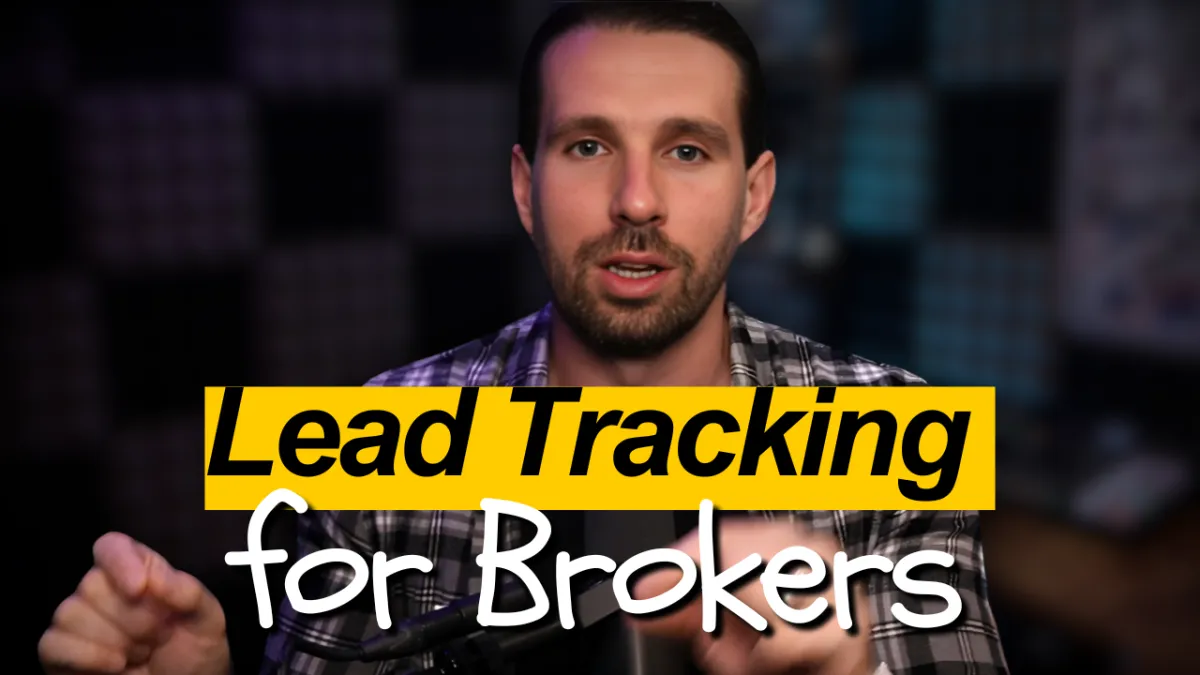Check out my YouTube channel for even more content HERE

How Can Mortgage Brokers Track the Success of Their Lead Generation Efforts?
Absolutely! Here's the revised, fully SEO-optimised blog post with all references to YouTube videos and video placeholders removed, while still keeping the structure, keywords, and expanded word count intact:
How Can Mortgage Brokers Track the Success of Their Lead Generation Efforts?
If you're a UK mortgage broker aiming to grow your business, generating leads is only the beginning. The real secret to scaling is knowing which efforts are actually working. That means tracking your lead generation consistently and strategically.
In this guide, we’ll break down how you can track the success of your lead generation as a mortgage broker, what metrics matter most, and how to use this data to work smarter—not harder.
Why Should Mortgage Brokers Track Lead Generation Efforts?
Without proper tracking, you’re operating blindly. It might feel like you’re doing everything right—posting content, networking, building SEO—but unless you’re measuring results, you won’t know which activities are truly bringing in quality leads.
Tracking helps you:
Focus on high-converting lead sources
Reduce wasted time on low-return efforts
Identify where your best clients are coming from
Increase revenue by streamlining your process
Build a predictable, scalable marketing system
If you want to generate consistent, high-quality mortgage leads, tracking is the first step.
What Are the Key Metrics Mortgage Brokers Should Track?
To track success effectively, focus on metrics that directly impact revenue and growth. These include:
Number of Enquiries – Track how many new leads you get each week or month.
Discovery Call Bookings – How many people actually take action to speak with you?
Lead Source – Where did each lead come from (Instagram, SEO, referrals, estate agents, etc.)?
Conversion Rate – What percentage of leads become paying clients?
Protection and Cross-Sell Rate – Are you increasing revenue per client by offering additional products?
Cost per Lead – Even for organic leads, your time and effort have value.
These numbers help you optimise your lead generation strategy and improve efficiency.
How Can I Track Where My Mortgage Leads Are Coming From?
The first thing to do is set up a system to log every lead. This could be a CRM like Go High Level or a simple spreadsheet. For each new enquiry, track:
Name
Date of enquiry
Source (Instagram post, SEO blog, referral, estate agent, etc.)
Stage in the sales pipeline (booked call, submitted, completed)
It’s also crucial to ask every client:
“How did you hear about me?”
This gives you visibility into touchpoints that aren’t always easy to track, like word-of-mouth, saved Stories, or someone who’s been quietly following you on social media.
How Can I Measure the Quality of My Mortgage Leads?
Not all leads are created equal. A lead that comes in and completes a mortgage application quickly is far more valuable than someone who disappears after the first message.
To track lead quality:
Tag each lead by source in your CRM.
Monitor conversion rates by channel (e.g., do Instagram leads convert better than estate agent referrals?).
Track average time-to-close (how long from enquiry to completion?).
Quality leads often come from content that builds trust—such as SEO blogs, educational posts, and case studies.
How Do I Track Discovery Call Conversions as a Mortgage Broker?
One of the clearest indicators of lead quality is your discovery call conversion rate—how many calls turn into completed cases.
Track:
The total number of discovery calls booked
How many proceed to fact-finds or applications
How many complete a mortgage and/or protection product
Use an online booking tool (like Calendly) to streamline the process and ensure every call is logged. Over time, you’ll spot patterns in which types of clients convert best and how to optimise your approach.
How Can I Track Marketing Content That Leads to Mortgage Enquiries?
Likes and comments are great—but they don’t always tell the full story. Instead, measure content effectiveness by tracking:
Number of enquiries linked to a specific post or blog
Comments or DMs that reference specific advice or topics
Downloads of lead magnets (e.g., “First-Time Buyer Guide” or “How to Prepare for a Remortgage”)
Email opens and click-throughs from nurture sequences
If a post or guide consistently brings in new leads, you know it's worth doubling down on.
How Can Mortgage Brokers Calculate Cost Per Lead?
Even if you’re not running ads, your time has value. Calculating the cost per lead gives you clarity on whether your approach is sustainable.
Here’s how to work it out:
Estimate how many hours per week you spend on lead generation.
Assign an hourly rate to your time (e.g., £75/hour).
Divide your weekly time investment by the number of leads generated.
For example:
10 hours x £75 = £750 ÷ 5 leads = £150 cost per lead
This helps you assess ROI and decide which channels are worth scaling.
What Tools Should Mortgage Brokers Use to Track Leads Effectively?
Here are some simple tools you can implement immediately:
CRM Software – Go High Level, Pipedrive, or Monday.com to track pipeline and lead sources.
Online Booking Tools – Calendly or Acuity to automate call scheduling and pre-qualification.
Spreadsheets – If you're just starting out, a structured Google Sheet with dates, sources, and status updates is powerful and free.
Email Marketing Platforms – MailerLite or ActiveCampaign to track engagement with lead magnets and nurture sequences.
Having the right systems in place means you’ll spend less time guessing—and more time closing.
How Can I Use Tracking Data to Improve My Lead Generation Strategy?
Tracking is only powerful when you act on the data. Here’s what to review monthly:
Which sources bring in the most leads?
Which sources bring in the best quality leads?
What type of content or messaging converts best?
Are you improving conversion rates over time?
Use this information to refine your messaging, double down on top-performing content, and cut the channels that aren’t delivering.
Final Thoughts: What’s the First Step I Should Take?
If you’ve never tracked your leads before, start with three simple steps:
Begin recording every new enquiry in one place.
Ask each client how they found you.
Monitor discovery call outcomes and make adjustments.
Over time, this creates a feedback loop where your lead generation becomes more efficient, effective, and predictable. And that’s what leads to scalable growth in your mortgage business.
Want help building a reliable, scalable lead generation system?
This is exactly what I coach brokers on every week. Whether you’re looking to reduce reliance on introducers, grow your brand, or build automated systems that bring in quality leads—tracking is the first step.
